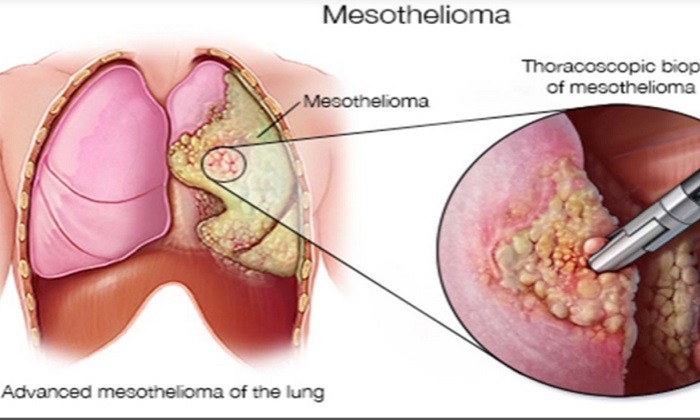What is Mesothelioma?
Pak Chronicle Web Desk
Disclaimer: Following article is based on some information, available on internet about Mesothelioma. One needs to consult his doctor in case of any physical disorder.
Mesothelioma is a rare and aggressive form of cancer that affects the mesothelial cells that line the body’s internal organs.
This type of disease is most commonly caused by exposure to asbestos, a group of naturally occurring minerals that were widely used in construction, manufacturing, and other industries before their carcinogenic properties were discovered.
Although the use of asbestos has been heavily regulated in many countries, cases of mesothelioma continue to be diagnosed worldwide. The disease can take several decades to develop after exposure to asbestos, and often presents with vague symptoms that can be mistaken for other conditions.
Types of Mesothelioma
There are four main types of mesothelioma, which are classified based on the location of the tumors within the body:
- Pleural Mesothelioma – the most common form, affecting the lining of the lungs.
- Peritoneal Mesothelioma – affects the lining of the abdominal cavity.
- Pericardial Mesothelioma – rarest form, affecting the lining of the heart.
- Testicular Mesothelioma – extremely rare, affecting the lining of the testicles.
Symptoms
Symptoms of Mesothelioma: The symptoms of mesothelioma vary depending on the location of the tumors and the stage of the disease. Some of the most common symptoms include, shortness of breath, chest pain, persistent cough, fatigue, weight loss, abdominal swelling and some others.
Diagnosis of Mesothelioma:
The diagnosis of mesothelioma usually involves a combination of imaging tests, such as X-rays, CT scans, and MRI scans, and a biopsy to confirm the presence of malignant cells. The stage of the disease is determined based on the size and location of the tumors, as well as the extent of metastasis.
Treatment of Mesothelioma:
The treatment options for mesothelioma depend on the stage of the disease, as well as the patient’s overall health and medical history. Surgery, radiation therapy, and chemotherapy are the most commonly used treatments, either alone or in combination.
Surgery is often used to remove as much of the cancerous tissue as possible, followed by chemotherapy and/or radiation therapy to kill any remaining cancer cells. In cases where the cancer has spread too far to be removed by surgery, palliative care may be the only option.
Prognosis
The prognosis for mesothelioma depends on many factors, including the stage of the disease, the location of the tumors, and the patient’s overall health. Unfortunately, mesothelioma is usually diagnosed at an advanced stage, which can limit treatment options and decrease the chances of long-term survival.
Prevention of Mesothelioma,
The best way to prevent mesothelioma is to avoid exposure to asbestos. If you work in an industry where asbestos is used, be sure to follow all safety precautions and wear protective equipment as recommended. If you are exposed to asbestos on the job, be sure to notify your employer and seek medical attention as soon as possible.
Conclusion
Mesothelioma is a devastating disease that can have a profound impact on patients and their families. Although there is no cure for mesothelioma, early detection and treatment can improve the chances of long-term survival and quality of life. If you or a loved one has been diagnosed with mesothelioma, it is important to seek the advice of a qualified medical professional and explore all available treatment options.
When asbestos fibers are inhaled, they can become trapped in the lining of the lungs, abdomen, or heart, causing inflammation and scarring over time. These changes can lead to the development of mesothelioma cells, which can grow and spread to other parts of the body.
Other risk factors for mesothelioma include smoking, radiation exposure, and genetics, although asbestos exposure remains the primary cause of this cancer.



